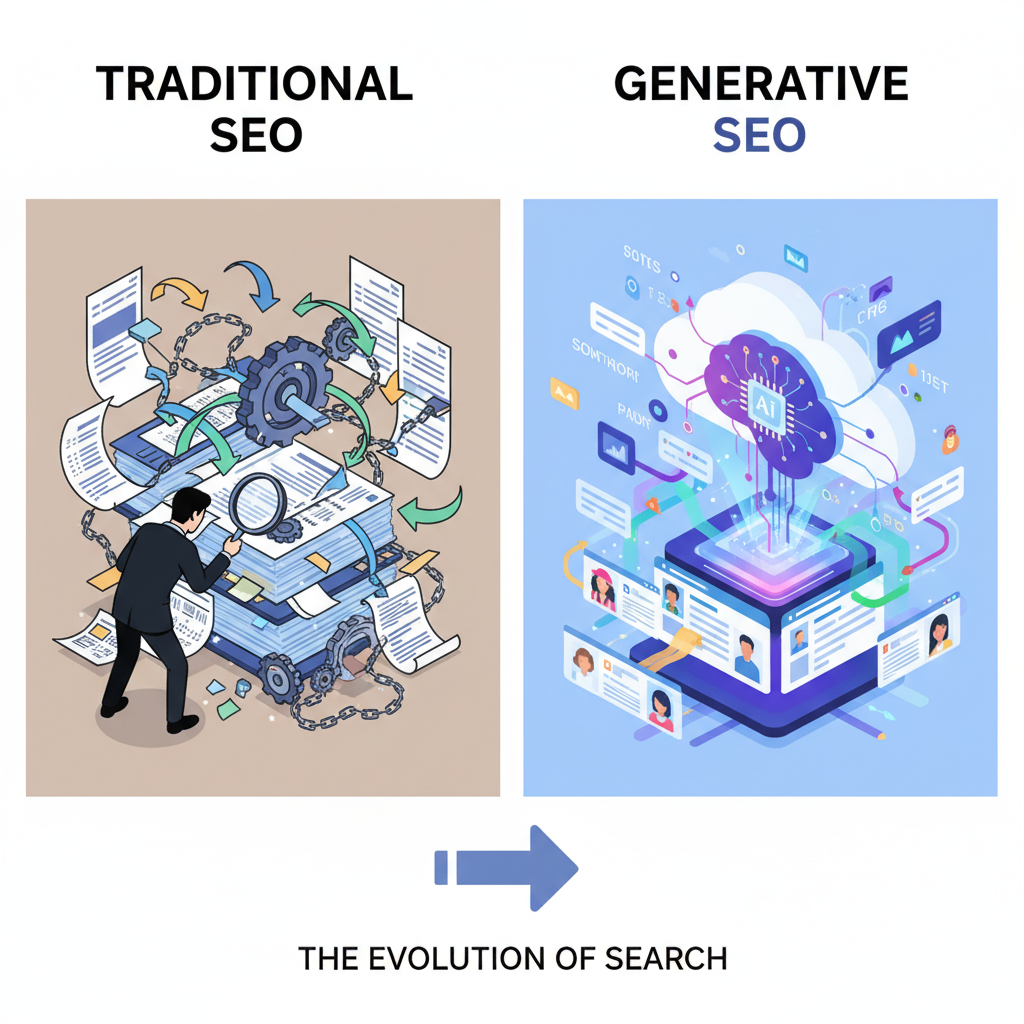Many marketers are still unclear about the difference between SEO and GEO, and how they overlap. The truth is simple: search is no longer just about ranking on Google.
AI tools like ChatGPT, Claude, and Google’s Gemini are now delivering direct answers. If your content does not show up in both search engines and AI responses, you risk losing visibility.
To stay relevant, you need to understand how SEO and GEO work together and why You Need Both Strategies in 2025

SEO and GEO Explained
- SEO is about optimizing your website for search engines. Rankings, traffic, and CTR are the focus. Keywords, backlinks, and technical performance drive success.
- GEO (Generative Engine Optimization) is about making your content AI-friendly so it gets cited in generative answers. GEO focuses on structure, clarity, and verifiable expertise.
The two complement each other.
- SEO drives visitors to your website. GEO gets your brand mentioned inside AI answers.
- SEO measures rankings and traffic. GEO measures citations and share of voice.
- SEO leans on traditional tactics. GEO adapts content for AI models that value accuracy and trust.
Combining both keeps you visible in search results and in the new wave of AI-driven platforms.
Is GEO Replacing SEO?
No. GEO is growing, but SEO is still dominant.
- OneLittleWeb found that from April 2024 to March 2025, chatbot traffic made up only 2.96% of search engine traffic.
- Ahrefs data shows that while ChatGPT usage is high, referrals to websites remain a fraction of what Google and Bing deliver.
- Higher Visibility reported that 79.8% of people still prefer Google or Bing for information searches.
These numbers show that AI traffic is increasing but remains small compared to traditional search. For now, SEO is essential, and GEO is an additional layer.
How to Optimize for Both
You do not need a separate strategy for each. The smart move is to align your content with both SEO and GEO requirements.
- Audit your top pages: Check if they are clear, structured, and easy to scan.
- Lead with the answer: Put the main takeaway upfront. Use headings and subheadings.
- Add verifiable facts: Stats, sources, and expert quotes increase credibility and AI citations.
- Keep SEO basics strong: Keywords, backlinks, site speed, and user experience remain critical.
By making small adjustments, your content will be both search-ready and AI-ready.
Final Word
SEO is not going away, but GEO is here to stay. Brands that want to keep their visibility need to cover both. Google and Bing are still the main gateways to the web, but customers are also starting to get answers from AI tools.
The question is not SEO or GEO. It is how well you prepare for both.
Want to know how SEO and GEO fit into your marketing plan? Contact Client Marketing today to review your current content strategy and make sure you stay visible in both search and AI results.

